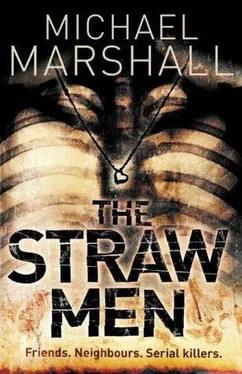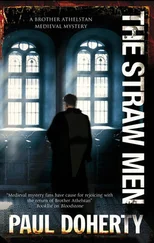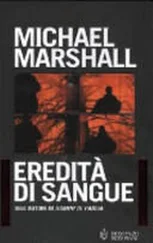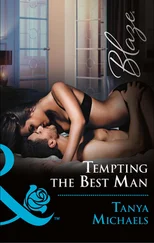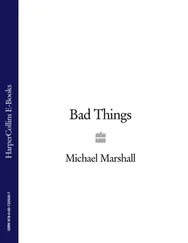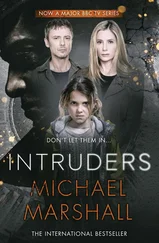At first the others disagreed. It was just the dream going flat, a trend Don had predicted long before. The natural divisions were resurfacing, that was all: their flames fanned by the frustrated realization that the People's Republic of America was as far away as ever. But then the deaths began. The demonstrations where both cops and students would be found on the ground with glass bottles in their faces. The street fights that bubbled seemingly out of nothing. The rock concerts where a scuffle would break out and bodies and a gun would be found when the crowd scattered. The explosions that took the lives of innocent bystanders without advancing any sane cause by a yard. Some of these events were the work of people who thought they were doing the right thing, that armed struggle was the only way forward. But the worst events were created by people who had a different plan altogether. The people with the guns and the dynamite were more organized than the freedom fighters, and predated both them and their cause. There was a cuckoo in the tie-dyed nest, rubbing its wings and preparing to fly.
Many people backed out at that stage. The Summer of Love was already fading into the Autumn of Jaded Apathy, and drugs had laid many out cold on the slab. Ed wanted out. Mary did, too. They had only really been in it for the excitement, after all, for something to do with their friends. Politics as social life, slogan as fashion accessory. Even Harold wavered. He was a lawyer. His soul yearned for order.
'But Beth and Don,' Harold said, his voice dry and quiet, 'they couldn't leave it alone.'
They asked questions, tracking lines of conflict. They traced the printers of certain hate sheets, and their authors, and found that the bad grammar and hint of madness were often fake. They looked for the friend of a friend of a friend, the one who people thought had maybe been the one who brought the gun to the demo, or who had first broken a bottle, or could broker you an introduction to the people who were really doing something, not just talking. They looked, and they started to find.
Eventually the threats began. Two of their friends were found badly beaten, left for dead in the back of a car. Another disappeared one afternoon and was never seen again. Harold found himself without a
job, the first sign that these people were a good deal better connected than the students and hippies whose protest they were hijacking.
And in the end my mother was followed one night, and abducted, and driven some distance and held in the car at knifepoint while someone whose face she couldn't see explained that if they didn't stop digging then their next homes would be shallow and for ever and in a forest where nobody walked. She was raped, by four men, before being thrown out of the car on the edge of town, naked and with her hair cut off.
After that my father changed. He hunted them down. For four months he and my mother left the world and everyone in it behind, plunging deeper into darkness until they found the candle shedding light in its centre. The others never knew the details of what went on during this time, only that my parents had changed. They still saw the Hopkinses, but now that they were no longer fighting the good fight there didn't seem as much to hold the group together. Don began to talk about strange things, about some big, loose conspiracy run by people trying to break down our society from within. The other three wouldn't listen, not at first. It sounded too much like the ravings of a couple whose grip on reality was no longer reliable.
And then one night the two of them had come into the bar where they all usually met. Mary had been drunk, after an argument with Davids, and didn't even speak to them. My father had taken Harold to one side and talked to him urgently. At first Harold had been reluctant, but in the end the three left together, leaving Mary in the bar with Lazy Ed. These two did the obvious thing and got shit-faced and then went into the woods and slept together. By the Lost Pond, in fact. Harold and Mary had stopped living with each other pretty soon afterwards.
The other three had driven for four hours to a place up in the hills of southern Oregon. They had been armed, and they came upon the place quietly. My mother and father had somewhat lost their perspective by this point, though they might have believed they had found it — that they had learned the harsh lesson that when it comes to the struggle between the people who believed in life, and those who believed in death, the battle had to be fought on the latter's terms.
The camp was in a clearing half a mile off the road, deep in the forest. A cluster of cabins, hand-built and arranged in a circle, the way things used to be. After my mother had looked at each man and confirmed they had been involved in the incident, the three moved quickly, and they shot everyone they found.
* * *
There was silence in Harold's living room.
'You went in and shot everyone? My parents shot people?'
'Not the women and children,' Davids said. 'And we didn't shoot to kill. But we shot the men. Each of
them. In the leg. Or the shoulder. Or the balls. Depending.'
'I don't blame them,' I said. I didn't know whether I meant this or not. I probably did. 'If what you're saying is true, then I don't blame either of them for what they did.'
'Oh it's true,' he said. 'I was there. The last man we found was the one who'd held the knife to your mother's throat. We didn't realize it then, but this wasn't just some group of rednecks off on their own. They had a cause. They've always been around. Your parents found this man sitting alone in his cabin. And your father, the great Don Hopkins, junior realtor, put a gun to his face and shot him dead.'
I tried to see that night, to see my father in that position, and I realized I had never really known him at all. I felt as if information was spilling out of my eyes.
'Then they heard a sound from the other room in the cabin, and Beth went through. The man's wife had left him, or he'd killed her. Either way she'd left their children behind. Twins, barely six months old, wrapped together in a little cot and now orphans. Two little children, exactly what Beth most wanted and couldn't have.' Davids shook his head. 'At least, that's the way they told it. I wasn't there for that part. Perhaps they saw the children first. Maybe Beth found the little ones and your father thought he saw a way to make up for what had been done to her. Maybe they decided that they were allowed one shot to kill.'
'My parents weren't liars,' I said.
'So you knew about all this, did you?'
'They weren't liars,' I repeated, uselessly. 'And this is all crap.'
'What happened to the children?' Bobby asked.
'We brought them back to Hunter's Rock. Don and Beth raised them for a while. But in the end it was decided that they had to be separated. Beth was very, very unhappy about the idea, and so was your father, but the rest of us decided that it simply wasn't safe. The babies weren't the only thing taken from the man's cabin. We found a lot of papers and books. Some were very, very old. There was proof that your parents had been right. There was a conspiracy. The people up in the woods were part of it. Beth and Don thought that they would be able to change the way you were, that environment was more important. It was very big back then, that idea. Not so popular now, of course, not with all this fuss about the human DNA thing and all that. Now everyone thinks that chemicals explain everything.'
'The babies were split up,' Bobby said.
'They kept one, and the other was taken far away. The idea was that they might stand more of a chance if they didn't have each other to reinforce the way they were. Or maybe it was a neat little experiment, Ward, cooked up by your father. Nature versus nurture. I didn't ever really understand.'
Читать дальше
